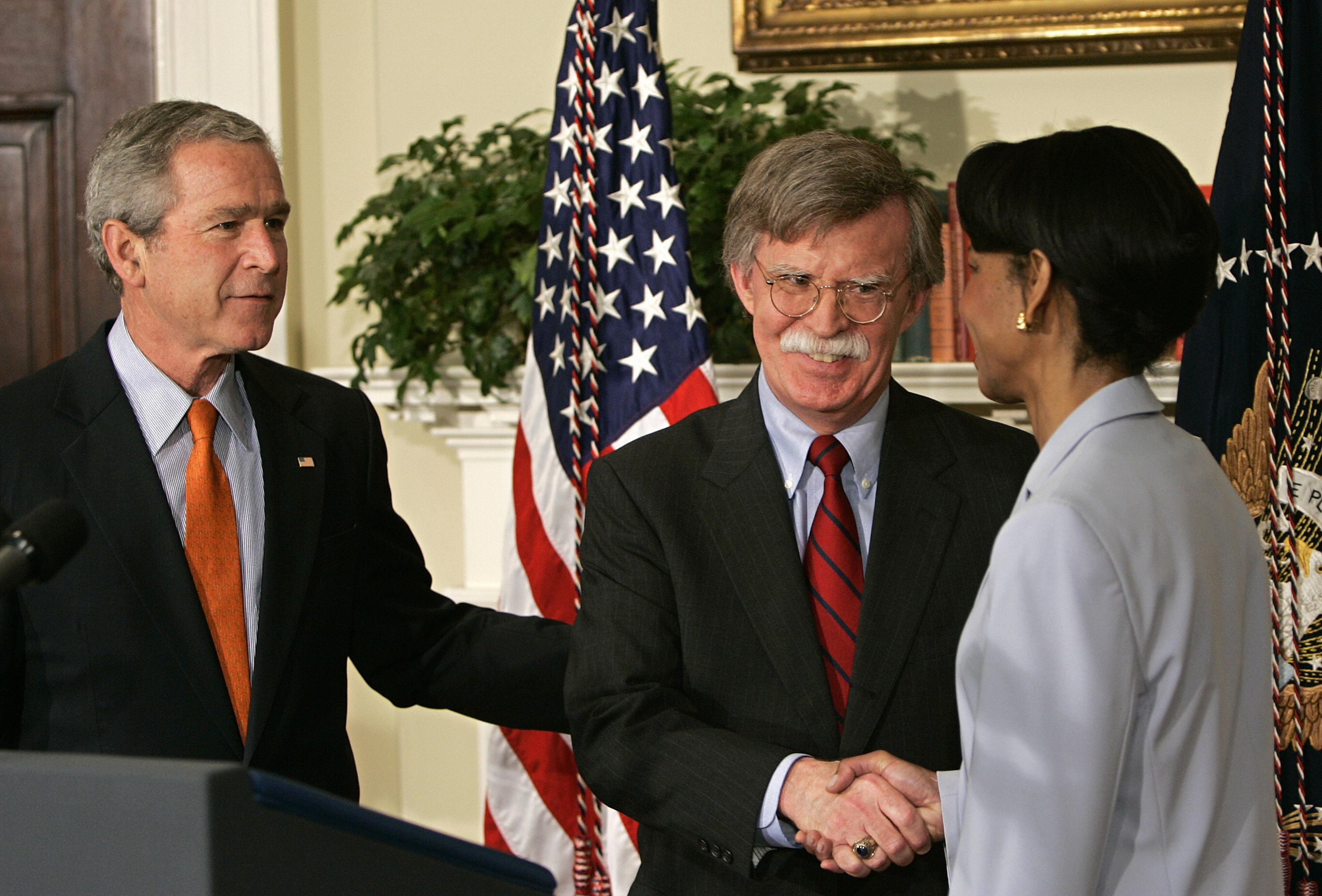
President Donald Trump on Thursday named John Bolton ’70 LAW ’74, a Yale alumnus and hawkish former ambassador to the United Nations, as his third national security advisor.
A supporter of the Iraq war and an advocate for military action against Iran and North Korea, Bolton wrote an op-ed last month in the Wall Street Journal making a case for the United States to strike North Korea. He accepted the nomination with a tweet on Thursday and vowed to “make [the] country safer at home and stronger abroad.”
Bolton’s appointment comes at a time of dramatic turnover in the Trump administration. When he assumes office next month, Bolton will work closely with a colleague who is just as new to his own job — Mike Pompeo, the C.I.A director and former Tea Party congressman who was tapped by Trump last week to replace Rex Tillerson as secretary of state. Bolton will replace H.R. McMaster, who became national security advisory in February 2017, after Trump’s initial pick, Michael Flynn, resigned from the position.
Bolton’s conservative ideology can be traced to his years as an undergraduate at Yale, where he served as executive emeritus of the Conservative Party in the Yale Political Union and belonged to the Yale Young Republicans. In his 2008 memoir “Surrender Is Not an Option,” Bolton said he felt like a “space alien” as a libertarian conservative surrounded by intense anti-Vietnam sentiment at Yale.
“I had an education to get, and the protestors could damn well get out of my way as I walked to class,” Bolton wrote. “Apart from the particular issue of Vietnam, the incessant politicization of every aspect of Yale life was the most dangerous consequence of the late sixties. This really was the American version of China’s ‘Cultural Revolution.’”
In the memoir, Bolton writes fondly of the time he spent listening to Republican thinkers in the YPU, calling it “a welcome relief from Yale’s relentless, smug, self-satisfied liberalism.” The all-time highlight, he wrote, was a debate between William F. Buckley Jr. ’50 and then University Chaplain William Sloane Coffin Jr. ’49 DIV ’56 on whether the government has an obligation to promote equality and preserve liberty.
A political science major, Bolton graduated from Yale summa cum laude in 1970. A former suitemate remembers him as intelligent and ambitious.
“It was understood among our group that Bolton aspired to be the highest ranking non-elected official in the government,” said Bruce Krueger ’70, who lived with Bolton in Calhoun College in the 1960s. “Nearly 50 years later, he’s almost there.”
Krueger said Bolton was upset when Yale decided to provide free room and board to activists who came to New Haven for the Black Panther trials in 1970. But for the most part, he said, he and Bolton discussed topics other than politics, like Krueger’s research in neuroscience.
“He understood, on an intuitive and philosophical level, what I was doing and seemed to understand many of the details as well,” said Krueger, who studied neuroscience as a graduate student at Yale. “He is, perhaps, the smartest person I have ever known and understood more about science than any non-scientist I know.”
Bolton served as a groomsman at Krueger’s wedding. Although they had not seen each other in more than 40 years, Krueger said, Bolton called him in 2016 when his wife died — a gesture that Krueger described as an expression of “sincere sympathy and kindness.”







